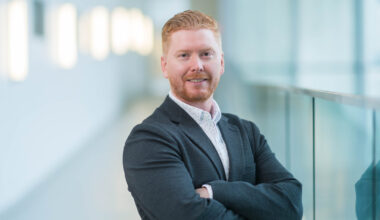A research study that hopes to improve the convenience and reduce the cost of a Health Canada-approved treatment for depression is underway, and the preliminary results are encouraging. Dr. Fidel Vila-Rodriguez, director of the Non-Invasive Neurostimulation Therapies (NINET) Lab at the Djavad Mowafaghian Centre for Brain Health, presented twice on his work at the Canadian Psychiatric Association Annual Meeting in Vancouver on October 1, 2015.
“Traditionally, repetitive transcranial magnetic stimulation (rTMS) has been delivered over 40-minute sessions once per day for a period of six weeks,” Dr. Vila-Rodriguez says. “We’re a few months from completing our study, but already we’ve shown that three-minute sessions appear to be as effective as 40-minute sessions, which we believe will reduce the burden on patients and the cost of treatment on the Canadian healthcare system.”
Repetitive transcranial magnetic stimulation (rTMS) treatment is a non-invasive technique that involves stimulating certain areas of the brain with magnetic field pulses. It is an effective therapy for treatment-resistant Major Depressive Disorder, and was approved for clinical use by Health Canada in 2002. Over time, rTMS can change the activity level of the stimulated brain region and help alleviate symptoms of depression.
There are currently a limited number of clinics in Canada offering this service, despite the high demand for this type of treatment. With each session currently lasting 40 minutes, the number of patients who can be seen by a clinic in a single day is very low. For a six-week course of treatment, current costs are around $5,000 per patient.
“By increasing the number of patients a clinic can see each day by drastically reducing treatment time, we can improve the cost-effectiveness of rTMS treatment and make the treatment more accessible to the people who need it,” says Dr. Vila-Rodriguez. In addition, the convenience added for patients receiving the treatment will increase “We have had a number of participants who were either studying or working while they were participating in the study, and those receiving the 3-minute treatment would report to study personnel that three-minute treatments feel a bit like a coffee break.”
Over 200 patients have already been recruited to the trial, with 100 more expected by the end of the year. For more information about the study, visit www.ninet.ca.


